MercoPress. South Atlantic News Agency
Tag: Sterling
-
Thursday, November 1st 2018 - 06:12 UTC
The Times reports EU/UK tentative deal on financial services: sterling jumps 0.6%
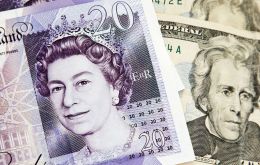
British Prime Minister Theresa May has struck a deal with the European Union that would give UK financial services companies continued access to European markets after Brexit, the Times reported on Thursday.
-
Friday, May 11th 2018 - 06:12 UTC
Bank of England leaves interest rates unchanged, slashes 2018 growth prospects
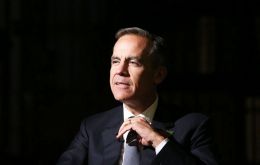
The Bank of England has backed off from raising interest rates as it slashed 2018 growth forecasts, but said the economy would bounce back from a weather-hit “soft patch”. Policymakers kept the prospect of rate hikes firmly on the cards, although it sparked confusion over when the next increase may come.
-
Tuesday, November 14th 2017 - 09:44 UTC
Sterling slides on concerns about UK leadership and rebel Tory MPs
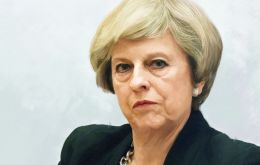
Sterling fell against the dollar and euro on Monday as investors worried about Theresa May's ability to stay on as British prime minister and get what they consider to be a good exit deal from the European Union.
-
Wednesday, May 31st 2017 - 07:24 UTC
Sterling drops on fears Tories could fail to win an outright majority

The value of the pound dropped after a projection suggested the Conservatives could fail to win an outright majority in the election on 8 June. Previous opinion polls suggested Prime Minister Theresa May's party would increase its majority, which is currently 17 seats.
-
Wednesday, January 26th 2011 - 18:20 UTC
United Kingdom Economy Shrinks Fuelling Fears of Recession
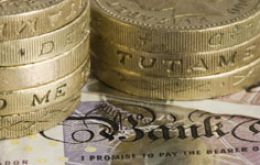
United Kingdom Chancellor George Osborne stands by his financial policies, in spite of figures which show the UK economy has shrunk by 0.5 percent and concerns Britain is facing a recession.
-
Tuesday, May 18th 2010 - 21:53 UTC
UK consumer inflation reaches 17-month high in April
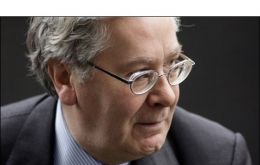
United Kingdom consumer price inflation unexpectedly jumped to a 17-month high in April, 3.7%, driven by big rises in tax on alcohol and tobacco as well as higher prices for women's clothing and food, data showed.
